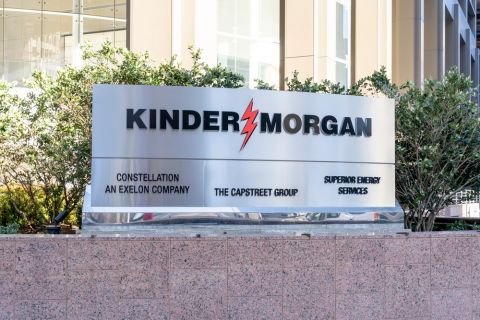Alberta and Minister of Energy Ken Hughes are looking for a way out: boats, trains or, with luck, the Keystone XL pipeline.
The country has a stockpile of resources, including more than 170 billion bbl. of proven oil at the start of 2012 and the thirdlargest reserves in the world after Saudi Arabia and Venezuela. It’s the world’s third-largest natural gas producer.
It just needs a way to get those resources to market, Hughes said.
The problem for Canada is that its biggest customer—the U.S.—is no longer as reliant on its oil and gas, Hughes said recently at Hart Energy’s DUG Canada conference.
“If you look at where we are today in Alberta, we’ve been well served by having one client, one customer in the United States of America. Exceedingly well served,” Hughes said.
But, thanks to technology and the shale oil and gas revolution, U.S. capacity has changed that arrangement.
“Everybody knew that was possible, but not everyone was predicting how quickly that would happen or what an impact that would have on the continental crude market,” Hughes said.
In 2011, Canada accounted for about 25% of U.S. oil imports, or 2.2 million bbl. per day of crude oil. However, the U.S. exported 250,000 bbl. of oil per day, a more meaningful volume of petroleum products, according to the U.S. Energy Information Administration (EIA).
“With that growth of that capacity, we actually now have to be very determined to get to other markets,” Hughes said. “It’s no surprise that getting to global markets means getting our production onto tidewater. As long as we’re on tidewater, we get world price or close to it.”
Pricing is a key matter for Canadian oil, Western Canadian Select, which gets a lower price than West Texas Intermediate and Brent. Estimates vary, but the cost to the Canadian economy is in the billions.
Hughes said Alberta has a talented young workforce, access to global capital markets and a tremendous supply of resources.
“We have all the challenges anybody else in the rest of the world would love to have,” he said. “Our greatest challenge is the fact that we actually have a challenge getting our stuff to market.”
Hughes said the government is exploring every opportunity. For instance, five years ago, no one would have thought trains would be used to move huge volumes of oil around the continent. Such transport is more costly and less safe than pipelines.
But last year trains shipped 600,000 bbl. a day out of the Bakken. In Canada, 150,000 bbl. a day moves by train, Hughes said.
“One of the really interesting developments is when there’s spread like there is today on the price of oil, the natural forces of the market are remarkably responsive,” he said. “When arbitrage opportunity is there, people take advantage of it.”
“We’re working on every possible angle,” Hughes said. “We will do what it takes to make sure we have a market for our products.”
Alberta is also keen to add value to products in Canada, which Hughes sees as an important part of gaining access to the global market.
“The province needs to be ready to step up, create the circumstances for the industry to be successful,” he said.
The Keystone XL pipeline would alleviate some pressure on the Canada within the next couple of years. But Hughes said he’s taking nothing for granted.
“I remain cautiously optimistic, but we have much work to do to make sure that happens,” he said.
Alberta Premier Alison Redford recently traveled to Washington to promote the Keystone pipeline and Alberta’s commitment to cracking down on carbon emissions. Alberta is one of the few jurisdictions in North American that has a carbon tax, Hughes said.
He said Alberta needs social license—the good will of Canadians and the rest of the world—to allow industry to work.
“If we don’t have that social license, we start running into roadblocks and we start running into people who would stop us from trying to conduct the business we conduct,” he said. “As an industry, the energy industry needs to be prepared to step up, and if there are challenges out there, we need to address them.”
Fracing is a great example, Hughes said.
“There’s a lot of misinformation out there” he said. “What we need to do, those of us who actually understand that technology, is ensure that we’re out there in the competition of ideas: online, working with people, making sure that people can’t misinform great swaths of the citizenry.”
Recommended Reading
South Dakota High Court Rejects Eminent Domain Power for CCUS Pipeline
2024-10-25 - The South Dakota Supreme Court justices have placed yet another roadblock in the way of Summit Carbon Solutions’ highly contested carbon capture pipeline project.
Construction on Kinder Morgan’s Tennessee Pipeline Delayed by Stay
2024-10-15 - An appeals court panel put two permits on hold for Kinder Morgan’s pipeline to consider the project’s implications on the Clean Water Act.
LNG Sector Under Fire as Activists’ Lawsuits Surge
2024-10-10 - ESG litigation is increasingly affecting the LNG industry while, more broadly, nearly 70% of climate-related cases are filed in the U.S.
Q&A: Making Midstream’s Case in DC
2024-11-08 - GPA Midstream Association President and CEO Sarah Miller spoke with Oil and Gas Investor on working with the industry’s needs and defending the sector in Washington, D.C.
Liberty Energy’s Chris Wright is Harold Hamm's Top Choice for Energy Secretary
2024-11-15 - Energy policy influencer and founder of wildcatter Continental Resources Harold Hamm told Hart Energy that North Dakota Gov. Doug Burgum is also on his short list.
Comments
Add new comment
This conversation is moderated according to Hart Energy community rules. Please read the rules before joining the discussion. If you’re experiencing any technical problems, please contact our customer care team.






